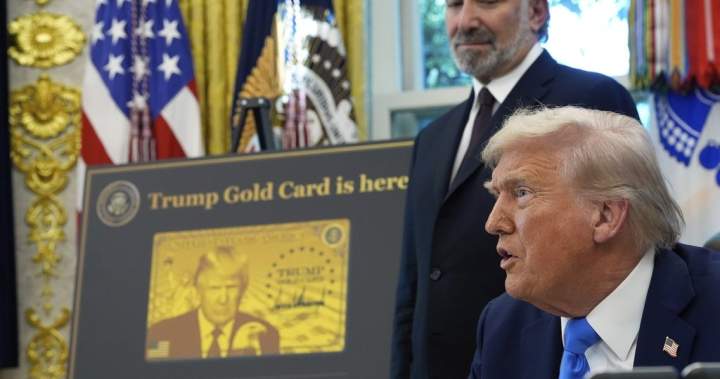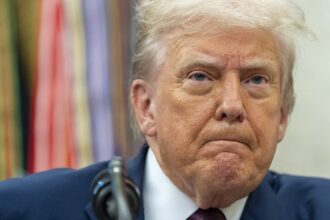In a sweeping reimagination of America’s immigration system, former President Donald Trump has unveiled a controversial proposal that would dramatically alter how skilled foreign workers enter the United States. The plan, announced during a campaign stop in Michigan, introduces what critics are calling a “pay-to-play” immigration model that would include a staggering $100,000 fee for H-1B visas and a $1 million price tag for immediate permanent residency.
“We will replace the H-1B visa with a new ‘Trump H-1B’ that costs $100,000 per visa,” Trump declared to a crowd of supporters. “That money will be used to fund the training of American workers and build up American communities.”
The proposal represents a radical departure from the current H-1B visa program, which annually admits approximately 85,000 skilled foreign professionals through a lottery system. Under existing regulations, employers typically pay between $1,710 and $4,000 in application fees, depending on company size and other factors.
Perhaps most striking is Trump’s “Gold Card” initiative – a fast-track to permanent residency available to those willing to invest $1 million in designated communities. “You want to be here right away? Pay a million dollars, and boom, you get your Gold Card,” Trump explained, framing the concept as a way to revitalize struggling American neighborhoods.
Immigration policy experts have expressed serious concerns about the feasibility and implications of such dramatic fee increases. Stuart Anderson, executive director at the National Foundation for American Policy, told CO24 News, “This would effectively end most H-1B visa applications from small and medium-sized businesses and startups that simply cannot afford such exorbitant costs.”
The tech industry, which heavily relies on H-1B talent for specialized roles, has responded with immediate alarm. Silicon Valley executives argue that such a policy would drive innovation offshore and create significant competitive disadvantages for American companies in the global marketplace.
Labor economists point to deeper questions about the proposal’s impact on domestic workers. While Trump positions the high fees as protection for American jobs, research from the National Bureau of Economic Research suggests that H-1B workers often complement rather than replace native workers, particularly in STEM fields facing persistent talent shortages.
The proposal also raises concerns about equity and access. “This transforms immigration from a merit-based system to one based purely on wealth,” says Maria Rodriguez, director of the Immigration Policy Center. “It fundamentally changes who gets to come to America – from the most talented to the most affluent.”
Trump’s plan would represent a significant departure from his first administration’s approach, which focused more on restricting overall immigration numbers rather than implementing dramatic fee increases. During his presidency, Trump suspended the H-1B program during the pandemic and implemented various regulatory changes aimed at tightening eligibility requirements.
Critics point to potential economic consequences beyond the tech sector. Healthcare, research institutions, and universities – all significant employers of H-1B professionals – would likely face substantial challenges recruiting international talent under such a system. Rural healthcare facilities, already struggling with physician shortages, could find recruitment particularly difficult if visa costs rise exponentially.
Legal experts also question whether such dramatic fee increases would withstand court challenges. “There’s a reasonable argument that fees this high constitute an effective ban rather than a regulation,” explains immigration attorney Jennifer Minear. “Courts might view this as executive overreach.”
As Canada and other countries actively court global talent with streamlined immigration pathways, some business leaders worry about the competitive implications. “When we make it harder for talent to come here, we don’t just protect American jobs – we potentially create them elsewhere,” notes economist Michael Porter.
As November’s election approaches, this proposal adds another layer to an already contentious immigration debate. Will Americans embrace a system that treats immigration access as a premium commodity, or will they reject the notion that America’s doors should open widest to those with the deepest pockets?










